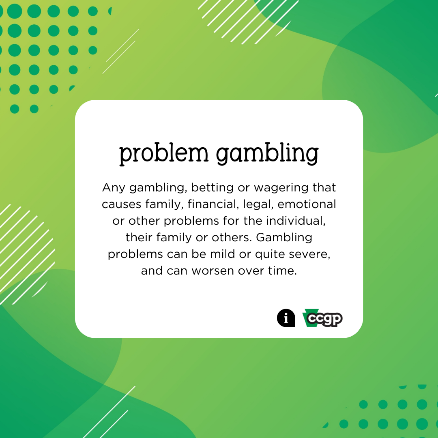Check back soon for more content
The Social Media Subcommittee
Co-Chairs: Mallory Perrotti
Objectives:
-
- To create Social Media campaigns/ready-made posts and other materials to use
- To build a Social Media toolkit that meets the following requirements:
- It will be used (built based on input from prevention professionals on what they need)
- It will be usable long-term (throughout a year) yet be fluid (can be updated)
- It will be housed on the CCGP website
- Training and learning opportunities
Problem Gambling Media
Please see below for DDAP approved posts/captions that can be used during PGAM and throughout the year to raise awareness of problem gambling resources.
To download the SCA PG Media Toolkit, click HERE – this toolkit contains information and instructions on how to use approved assets.
To request assets from DDAP, please refer to the DDAP Media Campaign Items and contact them at ra-da_gambling@pa.gov with which items (on which page) you would like to request and they will be emailed to you.
PGAM 2025 – Problem Gambling Social Media Posts
Healthy Gaming Posts
Problem Gambling in Older Adults Post
Youth & Problem Gambling Post
Text Messages Post
PGAM – Problem Gambling
Approved Caption: Gambling becomes problematic when a person keeps playing despite experiencing negative consequences from their gambling participation. Because they are preoccupied with their gambling activities and are losing control, excessive players will neglect their other responsibilities and activities. They are unable to set or maintain limits related to both time and money.
If you or someone you know has an issue related to gambling, help is available. Call 1-800-GAMBLER or visit www.pacouncil.com for more information.
ℹ️ @Council on Compulsive Gambling of Pennsylvania
PGAM – Warning Signs
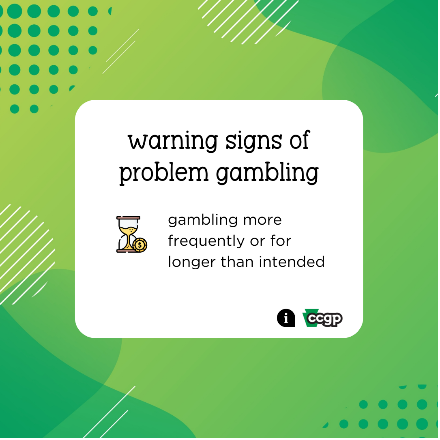
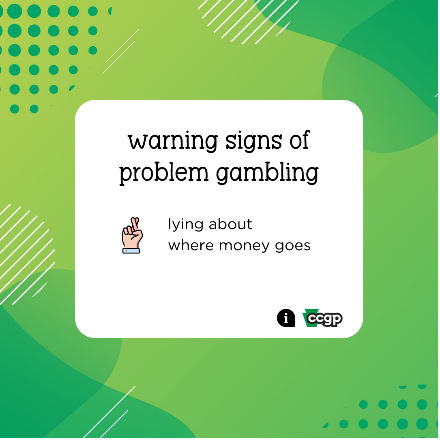
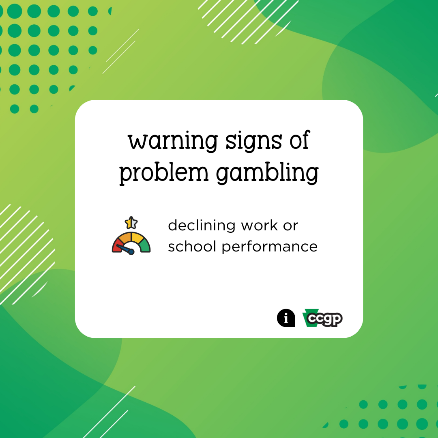
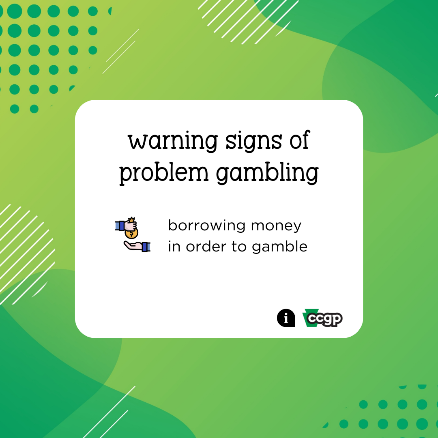
Approved Caption: While most who choose to gamble can do so responsibly, problem gambling risks can arise. It is important to know the warning signs. When gambling behavior interferes with finances, relationships and the workplace, a serious problem already exists.
If you or someone you know has an issue related to gambling, help is available. Call 1-800-GAMBLER or visit www.pacouncil.com for more information.
ℹ️ @National Council on Problem Gambling
PGAM – Warning Signs
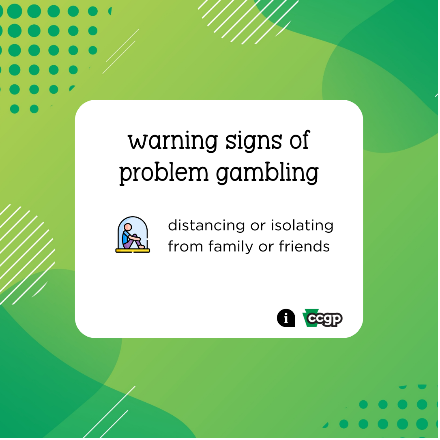
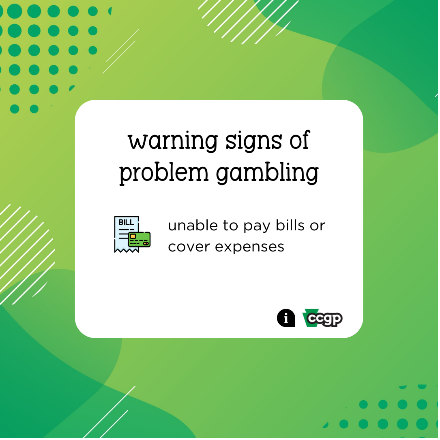
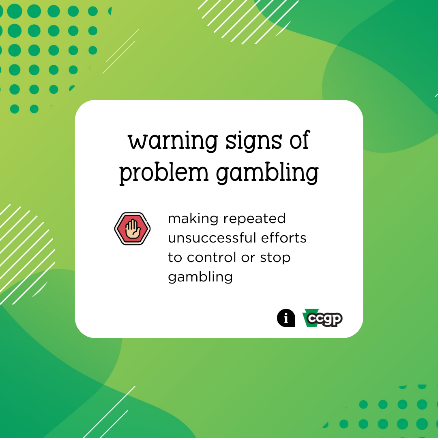
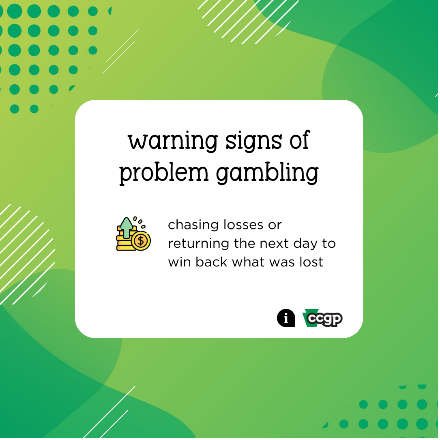
Approved Caption: While most who choose to gamble can do so responsibly, research suggests that over 5 million adults in the United States are estimated to be experiencing gambling-related problems. In Pennsylvania, this translates to hundreds of thousands of individuals. As more gambling becomes available and participation increases, it is likely that more people may begin to experience problems.
If you or someone you know has an issue related to gambling, help is available. Call 1-800-GAMBLER or visit www.pacouncil.com for more information.
ℹ️ @Council on Compulsive Gambling of Pennsylvania
PGAM – Older Adults

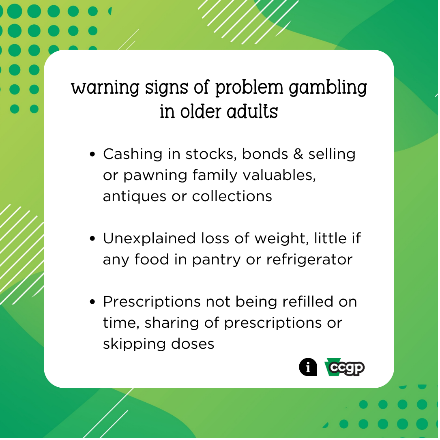
Approved Caption: Gambling can become a problem for adults over the age of 65 as easily as any other age group. Older adults are often drawn to the convenience of gambling close to home, being able to begin gambling with low amounts of money and having a safe and pleasant place to go and enjoy some time with friends or alone.
If you or someone you know has an issue related to gambling, help is available. Call 1-800-GAMBLER or visit www.pacouncil.com for more information.
ℹ️ @Council on Compulsive Gambling of Pennsylvania

Approved Caption: Risk factors for #GamblingDisorders include 🔹 family history of addiction 🔹 mental health symptoms 🔹 risk-taking personality 🔹and being around others who gamble.🔹 Everyone deserves help and support. If you or someone you know has an issue related to gambling, help is available. Call 1-800-GAMBLER or visit www.pacouncil.com for more information.
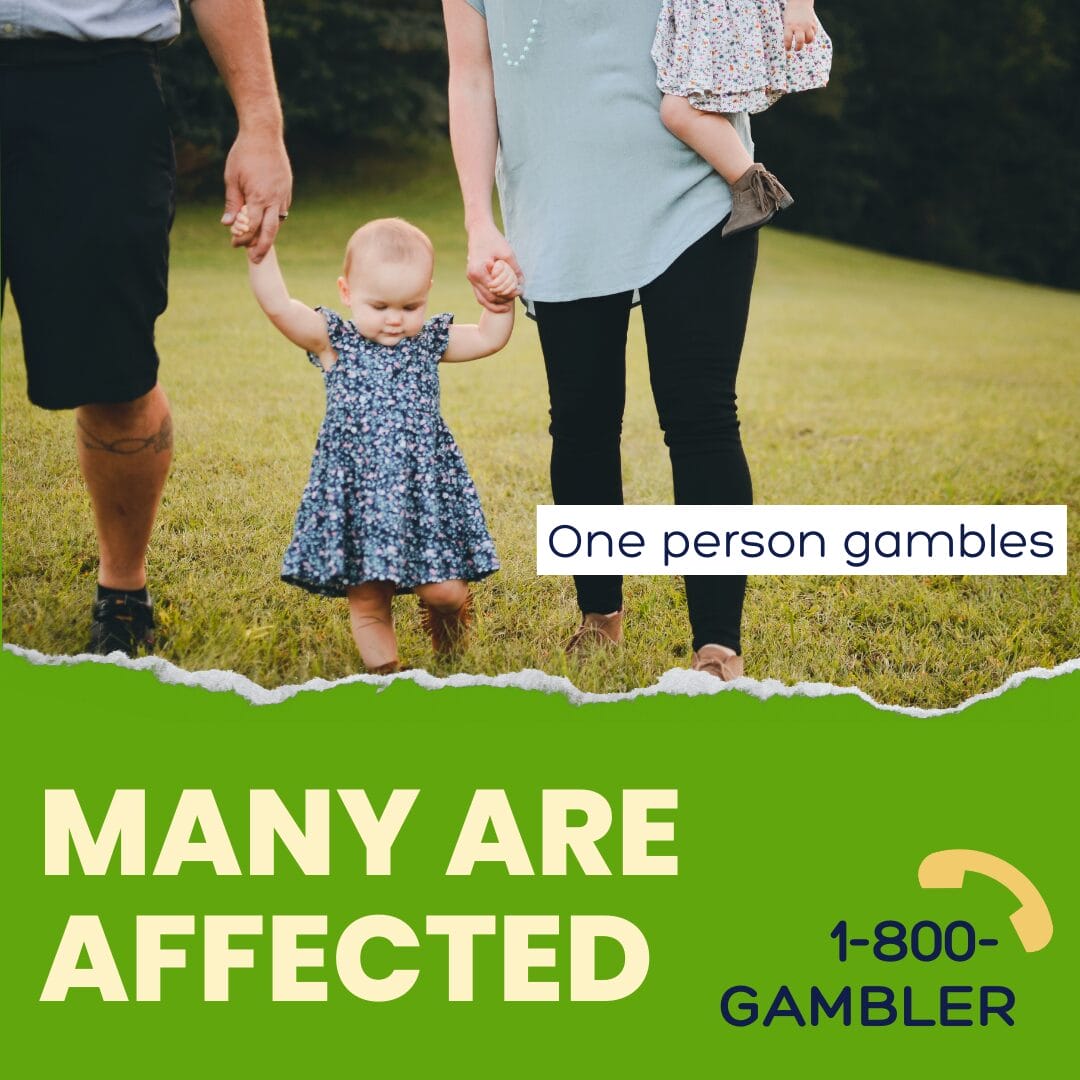
Approved Caption: Problem gambling’s impact on loved ones is devastating. If you are worried about your own #gambling or someone else’s, reach out – it’s confidential and free. If you or someone you know has an issue related to gambling, help is available. Call 1-800-GAMBLER or visit www.pacouncil.com for more information.
Talking To Kids Video
Setting Limits Video






